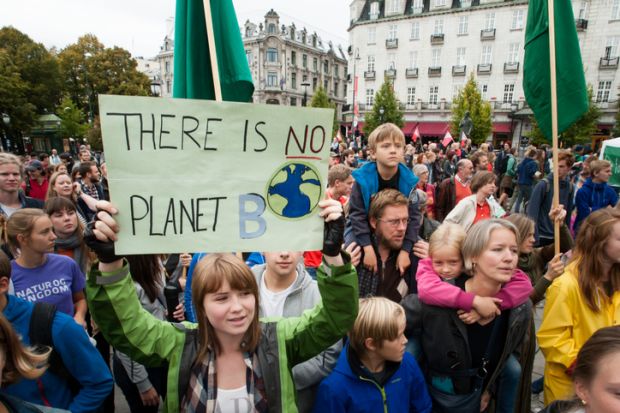Two climate scientists have shared this year’s Nobel Prize in Physics with an Italian scholar rewarded for “his revolutionary contributions to the theory of disordered materials and random processes”.
Syukuro Manabe, a Japan-born climatologist who moved to America in the late 1950s and is currently associated with Princeton University, was jointly awarded one half of this year’s prize alongside Klaus Hasselmann, from the Max Planck Institute for Meteorology in Hamburg, Germany.
Both scientists – aged 90 and 89 respectively – receive the prize for work that led to the development of climate change models, with Professor Hasselmann’s research seen as crucial in proving that the increased temperature in the atmosphere is caused by human emissions of carbon dioxide.
Meanwhile, Giorgio Parisi, professor of quantum theories at Sapienza University of Rome, where he took his doctorate, was awarded a half share of the physics prize for “the discovery of the interplay of disorder and fluctuations in physical systems from atomic to planetary scales”.
The 73-year-old Italian scientist’s work has “made it possible to understand and describe many different and apparently entirely random materials and phenomena, not only in physics but also in other, very different areas, such as mathematics, biology, neuroscience and machine learning”, said the Nobel committee.
The work of all three researchers was essential to understanding how the Earth’s climate is changing and how human behaviour is affecting those changes, it added.
The awards for climate science come just weeks ahead of the COP26 climate change summit in Glasgow, which will see world leaders convene to discuss measures to stop global warming.
“This year’s laureates have all contributed to us gaining deeper insight into the properties and evolution of complex physical systems,” says Thors Hans Hansson, chair of the Nobel Committee for Physics, who added that “the discoveries being recognised this year demonstrate that our knowledge about the climate rests on a solid scientific foundation, based on a rigorous analysis of observations.”
Register to continue
Why register?
- Registration is free and only takes a moment
- Once registered, you can read 3 articles a month
- Sign up for our newsletter
Subscribe
Or subscribe for unlimited access to:
- Unlimited access to news, views, insights & reviews
- Digital editions
- Digital access to THE’s university and college rankings analysis
Already registered or a current subscriber? Login








